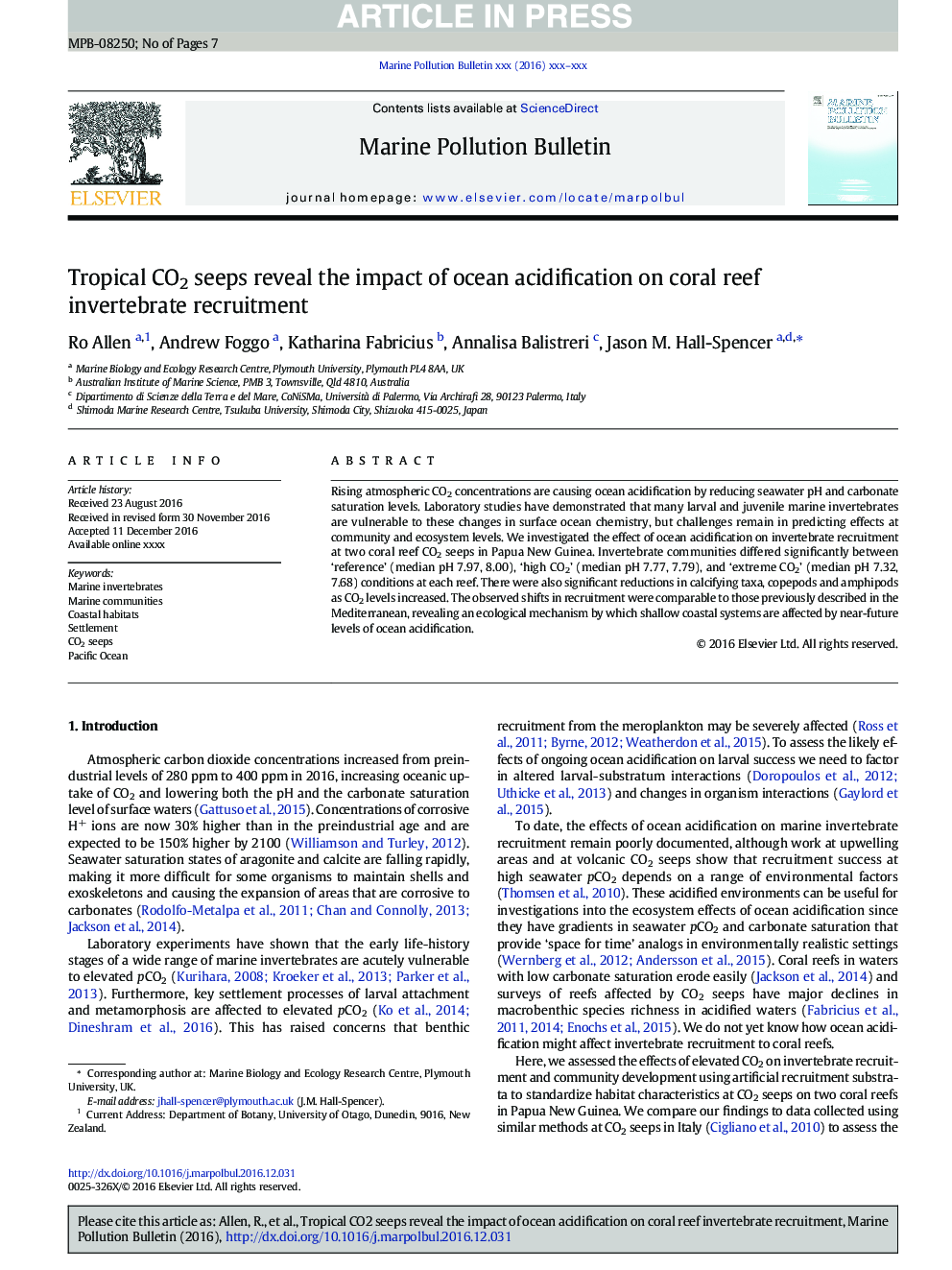| Article ID | Journal | Published Year | Pages | File Type |
|---|---|---|---|---|
| 8872042 | Marine Pollution Bulletin | 2017 | 7 Pages |
Abstract
Rising atmospheric CO2 concentrations are causing ocean acidification by reducing seawater pH and carbonate saturation levels. Laboratory studies have demonstrated that many larval and juvenile marine invertebrates are vulnerable to these changes in surface ocean chemistry, but challenges remain in predicting effects at community and ecosystem levels. We investigated the effect of ocean acidification on invertebrate recruitment at two coral reef CO2 seeps in Papua New Guinea. Invertebrate communities differed significantly between 'reference' (median pHÂ 7.97, 8.00), 'high CO2' (median pHÂ 7.77, 7.79), and 'extreme CO2' (median pHÂ 7.32, 7.68) conditions at each reef. There were also significant reductions in calcifying taxa, copepods and amphipods as CO2 levels increased. The observed shifts in recruitment were comparable to those previously described in the Mediterranean, revealing an ecological mechanism by which shallow coastal systems are affected by near-future levels of ocean acidification.
Related Topics
Physical Sciences and Engineering
Earth and Planetary Sciences
Oceanography
Authors
Ro Allen, Andrew Foggo, Katharina Fabricius, Annalisa Balistreri, Jason M. Hall-Spencer,
